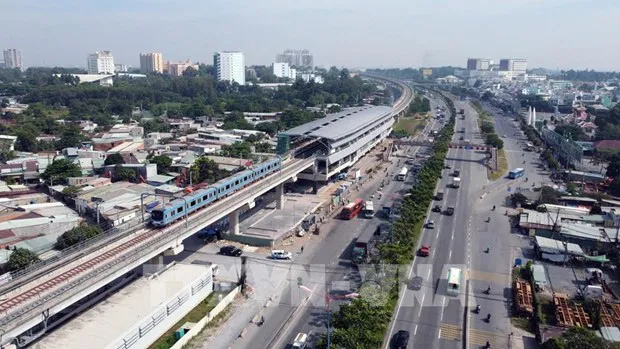Test run conducted on elevated section of HCM City’s metro train

The pilot run was carried out on a section stretching nearly 9km, starting from Suoi Tien Coach Station, passing by Vietnam National University - Ho Chi Minh City, Hi-tech Zone Station, Thu Duc Station, and arriving at Binh Thai Station.
During the test, the train stopped to pick up and drop off passengers at the Hi-tech zone Station.
Kazuhiko Nagasawa, Project Manager of Hitachi Company which is the project's contractor, described the event as an important milestone in starting the test operation of the train with mechanical and electrical systems on the line.
In 2023, Hitachi, together with subcontractors, will mobilise all resources to continue the installation and testing of all the systems in the depot, viaduct and tunnel areas, he said, adding it is committed to making every effort to complete the project.
Nguyen Quoc Hien, MAUR’s deputy head, said that in 2023, it will work with NJPT consultants and contractors to accelerate the project implementation, complete the construction, and move to the commercial operation.
The first metro line has 17 Japanese-made trains, each with a capacity to carry 930 passengers, and each train can travel up to 110 kph above ground and 80 kph underground.
All the trains have been tested at Long Binh depot in Thu Duc city since August.
Work began on Ho Chi Minh City’s first metro route in August 2012. It was scheduled to be completed in six years. The project has missed several deadlines and the latest reschedule has it becoming operational in the fourth quarter of next year.
By now, 93.56% of the work has been completed.
Metro Line No. 1 is expected to cost over 43.7 trillion VND (1.89 billion USD) and is funded with Japanese assistance and Vietnamese counterpart funds.





